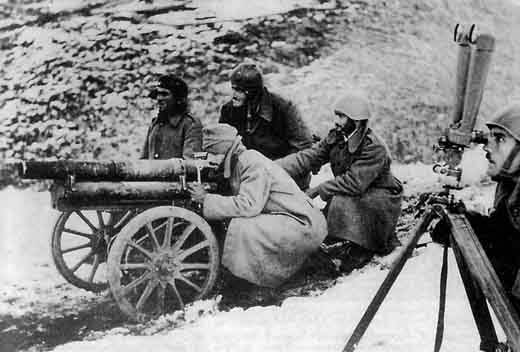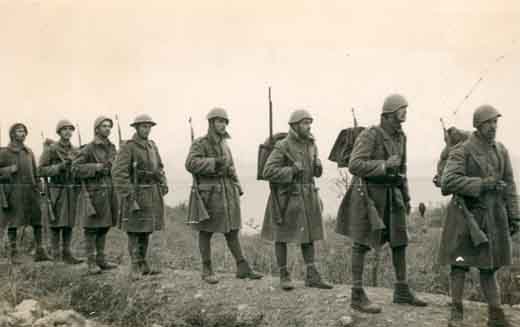Battle of Britain
Day 111
Weather - The day starting foggy and misty with clear spells later in the morning and early afternoon.
Combat - Reconnaissance raids are the main source of Luftwaffe activity during the morning with bombs dropping on a convoy near Dover and on the outskirts of the airfield at Hawkinge.
The first main attack of the day materializes at 1300hrs when about 30 Me-109's swept over Dungeness and into Kent. The formation splits up and eventually turns back before British fighters can intercept. This is followed by a similar raid at about 1430hrs, where Hurricanes of No: 257 Squadron, scrambled from North Weald, intercept Me-109's of JG27 near Gravesend.
By 1600hrs several raids of nearly 50 aircraft each are plotted over the Channel. The first heads for the Isle of Wight and at 1630hrs Portsmouth is attacked before Hurricanes of No: 145 and 213 Squadrons, both from Tangmere, can intercept. One of the Do-17's is eventually attacked as it heads back toward France.
Meanwhile, the other raids, of mainly Me-109's, cross the coast at Dover, Dungeness and Beachy Head and make for the Kenley and Biggin Hill areas. Hurricanes of No: 229, 249, 253, 257, 501 and 605 Squadrons and Spitfires of No: 74, 92 and 603 Squadrons are scrambled to intercept. For once the Me-109's of JG 51 and JG 53 suffer losses without inflicting any on Fighter Command.
During the night the number of raids over England is reduced. The main targets are London, Birmingham, Liverpool and Manchester with small raids on Reading, Coventry, Sunderland, East Anglia and the airfields at Biggin Hill, Digby, Linton-on-Ouse, Driffield, Binbrook, and Massingham.
R.A.F. Losses: 1 aircraft damaged with no casualties.
Luftwaffe Losses: 21 aircraft damaged or destroyed, 18 pilots and aircrew killed or missing and 9 wounded.
NOTE: Losses include non-combat patrols and accidents.
[Battle of the Atlantic
- U-32 finds the liner Empress of Britain and completes the job began two days previous and sinks the damaged ship. 49 lives are lost. She is the largest liner to be sunk during the war.
- The British steamer Sheaf Field (2719t) sinks on a mine 2 miles southwest of Sunk Light Vessel. There are 26 survivors from the steamer.
- The Greek steamers Belgion (2844t) and Leontios Teryazos are seized by German forces at Bordeaux.
France, Politics
De Gaulle formally proclaims the Free French government, with powers of the state to reside in himself and a council of defense.
[Greece and Albania
An Italian ultimatum is presented to the Greek Prime Minister Ioannis Metaxas during the night. Metaxas accepts it for what it is, a declaration of war. The Greeks are given three hours to reply. With the King's agreement, Metaxas refuses the ultimatum and declares that the Greeks will resist the invasion with all the forces at their command. At dawn, before the ultimatum expires, the Italians begin to cross the border into Greece. Patras is bombed. Britain promises to help.
Greeks Get Ready |
 |
General Sebastiano Visconti-Prasca leads eight of the 10 Italian divisions of the 9th and 11th Armies in Albania in the advance. They attack along three lines with the main effort being in the center from the Dhrina and Vijose valleys. Gen Alexander Papagos, the Greek Commander-in-Chief, has not deployed his main forces close to the border to avoid giving any provocation to the Italians. He too hopes to use eight divisions with the possibility of reinforcements being brought from the troops watching the Bulgarian border.
Besides the mountainous terrain and lack of maps for the commanders, the greatest obstacle to the Italians for the first two or three days is the very bad weather which grounds their air support. Thousands will die because of the cold. The Italians have chosen a very unwise time of the year for their attack.
Greeks Ready For Battle |
 |
Hitler and Mussolini meet at Florence at the Santa Maria Novella station. Hitler conceals his anger at not being kept informed of the Italian plans and says that German troops are available if it is necessary to keep the British out of Greece and away from the Rumanian oil. Hitler also confirms he will night sign any peace treaty with France that does not also meet Italian demands. He says Spain is in a state of complete disorder and Spanish requests for material help are too much of a burden for the Axis at this time. Concerning Russian, Hitler declares: 'My distrust of Stalin is as great as Stalin's distrust of me.' But there are agreements in force that 'immobilize' Russia, and as a guarantee of that immobilization, 180 German divisions stand ready for action. He reckons to crush British resistance by aerial bombardment, ant he thanks Mussolini for the help to the war effort given by the Italian submarines. Mussolini says that he agrees with Hitler's assessment of the situation, and the meeting ends with the usual 'perfect identity of views'.
Mediterranean
The Greek steamers Athinai (2897t) and Maria Nomikou (1165t) are seized by Italian forces off Messina. The ships are renamed Palermo and Arezzo respectively for Italian service.
[Vichy France
Pierre Laval becomes Foreign Minister of the Vichy government.
[